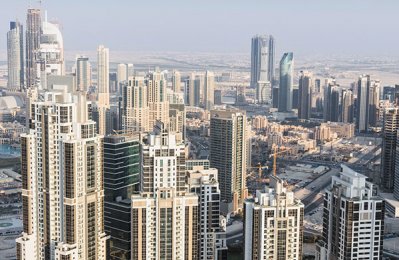The Business Registration and Licencing (BRL) sector in Dubai Economy witnessed 288,878 transactions, including 19,877 new licences, during 2017, showing the activity recorded on the "Business Map" digital platform.
The "Business Map" tracks BRL activity and seeks to reflect the economic realities in Dubai by providing vital data on each category of licences including their numbers and category-wise distribution as well as investor trends on a monthly basis, reported Emirates news agency Wam.
Renewal of licences accounted for 128,965 transactions in 2017 while there were also 26,029 initial approval transactions and 38,223 trade name reservations. Auto renewals constituted 47,125 transactions, instant licences 684, and e-trader licences 616.
The year also saw 24,123 transactions related to commercial permits and out of these 35.1 per cent were banner advertisements, indicating strong competition among companies in marketing their products and services. Promotional campaigns had a 23.3 per cent share, followed by discounts, special offers and clearance (22 per cent), summer promotions (14.0 per cent) and exhibitions (2.5 per cent).
The new licences issued in 2017 were distributed across sectors as follows: commercial (64.3 per cent), professional (33.8 per cent), industrial (1.1 per cent) and tourism (0.9 per cent).
The outsourced service centres of Dubai Economy played a major role in service delivery accounting for almost 80 per cent (231,902) of the BRL transactions in 2017.
Area-wise Bur Dubai and Deira topped the list of new licences issued with a share of 9,032 each, followed by New Dubai (1,753) and Hatta (70). The top ten sub-regions that had 51.5 per cent of the new licences are as follows: Burj Khalifa (12.8 per cent ), New Dubai (8.8 per cent ), Al Marar (6.9 per cent ), Naif (5 per cent ), Port Saeed (4.5 per cent ), Trade Centre 1 (3.7 per cent ), Hor Al Anz East (3 per cent ), Al Garhoud (2.4 per cent ), Al Barsha (2.3 per cent ) and Al Karama (2.1 per cent ).
The distribution and diversity of business activity monitored in 2017 further confirms Dubai’s pre-eminence as a business destination in terms of competitiveness and sustainability. Trade and repair services accounted for 33.8 per cent of the economic activities in the emirate, followed by real estate, leasing and business services (22.4 per cent ), building and construction (15.2 per cent ), community and personal services (10.8 per cent ), hospitality and hotels (6.3 per cent ), transport and storage (3.2 per cent ), manufacturing (2.9 per cent ), financial brokerage (2.2 per cent ), health and labour as well as agriculture (0.7 per cent each) and education had a 0.6 per cent share.
Among the new licences issued in 2017, 12 per cent went to women. The top nationalities among the new licence holders were Indians, Pakistanis, and Egyptians, followed by Saudis, Britons and GCC nationals. Saudis ranked second in terms of market share, followed by Omanis, Kuwaitis and finally Bahrainis in that order.
Dubai issues nearly 20,000 new licences in 2017

Trade and repair services accounted for 33.8 per cent<br>of the economic activities in the emirate

&uuid=(email))